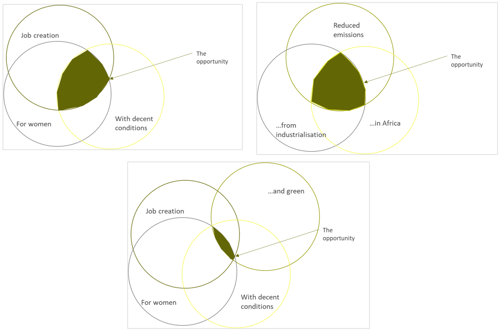Funded by the UK FCDO since 2019, the Commercial Agriculture for Smallholders and Agribusiness (CASA) project was presented as a prime example of how to use an MSD approach to implement pilot catalytic small-to-medium enterprise (SME) business models with private sector partners. According to Deputy Team Leader William Leonard, these pilots demonstrate the commercial viability, scalability and replicability of such models.
Through these interventions, the project also seeks to improve market functionality through efficient and effective climate-smart agribusinesses, which are able to access commercial financing, enabling more smallholder farmers to engage and trade with commercial markets, improving incomes, market systems, resilience and food security. So far, CASA has supported 50 enterprises, reached 293,694 smallholder farmers, leveraged £2,370,819 (or €2,729,844) of investment, created a £197 (or €227) average increase in annual income for smallholders, and influenced 24 policy decisions.
The application of MSD to address challenges at the agriculture-climate nexus was highlighted by the case study from Vipyha Chambo, an SME aquaculture business in Malawi supported by CASA. Smallholder pond aquaculture can often lead to eutrophication of pond water, which is often released into local waterways, creating pollution and negatively impacting habitats. CASA supported Viphya Chambo in setting up pond water outlets so fertilised effluent water would not mix with the rivers’ fresh water and cause pollution. This was incentivised by piloting the use of the nutrient-rich effluent water to irrigate bananas and sugarcane in their farm. Following a successful trial at the farm, CASA helped expand this model to the smallholder farmers Viphya Chambo works with to scale the impact. This is an example of how MSD approaches can help create financially and environmentally sustainable solutions to challenges faced by SMEs and farmers.
Viphya Chambo also exemplifies an important fact in implementing MSD programmes. There should be an awareness of trade-offs between market and environmental incentives. Ben Taylor, the CEO of Agora Global, shared a helpful visual summarising why it is essential to weigh all objectives during the initial stages of programme development and identify where the opportunity for win-win outcomes lie. Ben noted that when designing MSD projects, we must be mindful that the more objectives we have, the smaller the area of opportunity may be (see below). As such, MSD programmes must carefully and equitably consider their objectives, weighing these against the needs of the project participants.

The webinar concluded with positive reflections on future possibilities for continuing to utilise MSD approaches to address climate concerns while carefully considering trade-offs in programme design and working with both donors and project recipients to understand where equitable and sustainable interventions can be identified.
Resource: CASA Website
Watch the full webinar here:

















